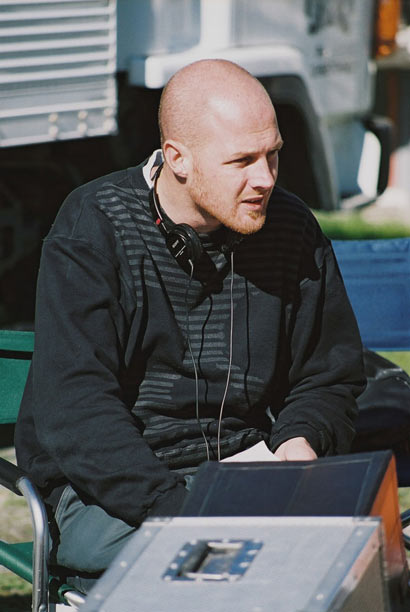“If I hadn't gone to art school I might not have ended up becoming a filmmaker.”
|
It's been eleven years since I graduated, so it's hard to remember all the names from back then. I occasionally wonder what various people from my year are doing these days. Did they continue with film as their chosen medium or have they found a more sensible career path? There are a few people from my film school days that are either still friends of mine or I'm aware of their continuing work and success in film or other related fields. The people who stand out in my mind are Nathan Pohio, Tim Brott, Cosmo Kentish-Barnes and Shane Norrie – I just caught up with Shane a few days ago actually. Also, Amanda Jenkins was in her last year of film school while I was in my first. She later went on to produce my 2004 short film Closer, which was selected for Cannes and won Best Short Film at the New Zealand Screen Awards. My lecturer was Bill DeFriez – that was just before John Crisstoffels' time, although John was the director of photography on my final year film. I think he began lecturing the year after I graduated. I strongly associate John with my time at film school – a great influence and collaborator. Luke Wood is another old mate from art school and is now the head lecturer in the school's design department. The social scene seemed fairly fractured, from what I can remember. The various disciplines didn't seem to cross over very much in a social sense, en masse at least. I remember an organisation called SCUB, which was basically a social club for art school students who would meet every Friday evening over at the painting or sculpture department to have a few beers. In the film department, the most memorable times for me occurred late at night when everyone was up all hours editing or trying to make their way through post-production leading up to an impending deadline. The shared experience brought people together. There was a great energy on some of those nights, perhaps brought on by a sense of euphoria, or possibly hysteria, due to a lack of sleep and many hours spent in small dark rooms. Some people never seemed to go home, perhaps just catching an hour or two of sleep in the studio before getting back to work. I already had a basic awareness of New Zealand and international art, but the film world was completely new to me in my first year. I was inspired by the work of Vincent Ward, particularly since he was a former student at Canterbury. His international success was an inspiration and opened my mind to greater possibilities – that our geographical isolation in New Zealand needn't hold me back in any way. I also liked Jane Campion's work of course. International filmmakers I liked at the time were Wim Wenders, Jim Jarmusch and Krzysztof Kieślowski. There were many others, but they were the main ones for me. My learning was fairly self-directed. This was frustrating at times, and I only found out where the gaps in my knowledge were when I left film school. Having said that, I also believe that this was good preparation for my future work as an independent filmmaker. My current work continues to be self-guided, as is the nature of filmmaking – and most other art forms for that matter. I learnt about collaboration at art school. I learnt about critical thinking. I formed the foundations of my aesthetics and interests as a filmmaker, which I still feel connected to and continue to build upon today. I look back on film school as my introduction to filmmaking, a starting point – a place where I discovered my chosen medium, became inspired and found direction. I finished art school when I was 21 or 22, so I still had a way to go and more to learn than I realised. I hoped that I would go out into the world and become a filmmaker, although I had no idea where to start or how to go about doing this. I ended up living in London for two years, then I moved to Melbourne and did a postgraduate year at the Victorian College of the Arts School of Film and Television – my Canterbury graduation film secured me a place in this course. My career as a filmmaker took off from this point. So, I set out to become a filmmaker and eventually I got there. I went to art school to study either painting or sculpture and then 'discovered' the film department during my first year. I had never considered film as a medium I might be interested in before this point. So if I hadn't gone to art school I might not have ended up becoming a filmmaker. |
||||

